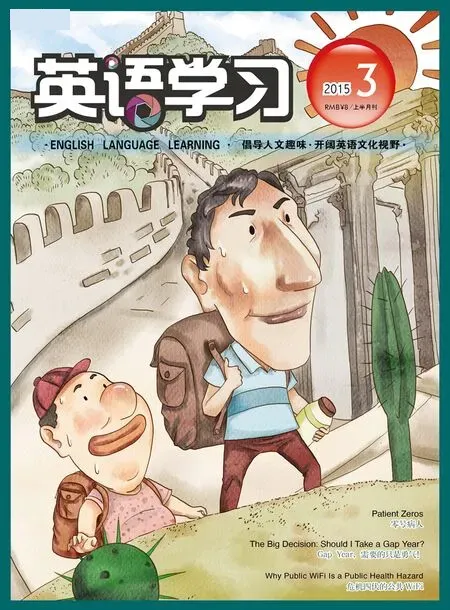10 Famous Geniuses with Weird Secret Behaviors
By Steffani Jacoby
10. Edgar Allan Poe埃德加·爱伦·坡(19世纪美国诗人、小说家和文学评论家,美国浪漫主义思潮时期的重要成员)
Granted, authors in the 1800s didn’t have the quick word-processing tools we have today,making handwriting often the more efficient choice.4. 的确,19世纪的作家没有我们今天所拥有的快速文字处理工具,因此手写还算是一个比较高效的选择。granted: 表示肯定属实,然后再作另一番表述。But Edgar Allan Poe went a step further,writing his works in a scroll fashion—on continuous strips of paper, attached with sealing wax.5. 但是埃德加·爱伦·坡更进一步, 在纸卷——绵延不断的长条纸带上写作,然后用密封蜡粘连起来。scroll:纸卷;strip: 带,条;sealing wax: 密封蜡。The habit set his editors on edge6. set sb. on edge: 使某人烦躁或恼怒。.
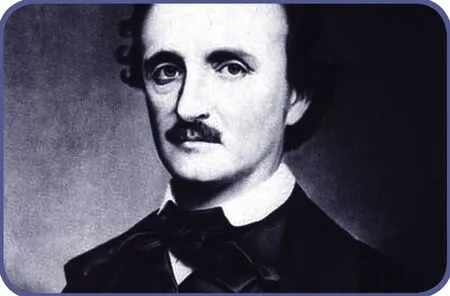
天才一般都有怪癖:中松义郎博士使自己溺水窒息以获得发明灵感;巴尔扎克一天喝掉50杯咖啡,不眠不休地创作《人间喜剧》;弗洛伊德宁愿忍受33次手术切除口腔和下巴肿瘤,也不愿意戒烟;发明家尼古拉·特斯拉在整整38年中,每天只睡4个小时;美国畅销书作家史蒂芬·金在写作时坚决避免使用副词;狄更斯一天梳头几百次……这些天才们的古怪性情和怪异举动都让人大开眼界,同时感慨:这都是“特殊禀赋”的代价啊!
Poe’s short stories are not for the faint of heart; they were so gory and morbid that many of his contemporaries found them almost unreadable.7. 爱伦·坡的短篇小说不适合胆小的人阅读,这些故事很暴力血腥,令人毛骨悚然,以致他同时期的许多人认为他的作品几乎无法阅读。the faint of heart: 胆小的人;gory: 充满暴力和血腥的;morbid: 病态的,令人毛骨悚然的;contemporary: 同时代的人。It wasn’t until well after his death that Poe’s work was admitted to the respected literary canon8. literary canon: 文学经典。. Poe’s cat also played a significant role in his creative process. Poe called his beloved tabby9. tabby: 虎斑猫。, Catterina, his “literary guardian.”
9. Dr. Yoshiro Nakamatsu中松义郎博士(日本最著名也最雷人的发明家)
Here’s the most prolific10. prolific:(艺术家、作家等)多产的。modern inventor that you’ve probably never heard of. Dr. Yoshiro Nakamatsu (who actually prefers to be called Sir Dr. NakaMats) patented the floppy disk in 1952 and has patented more than 3,300 inventions total during his 74 years of life.11. 中松义郎博士(他本人则更喜欢别人称他中松义郎博士爵士)于1952年获得了软盘的专利,在他74年的人生中,他总共获得了超过3,300项发明专利。 patent: 取得……专利;floppy disk: 软盘。And many of his greatest ideas hit him when he was close to drowning.Dr. NakaMats believes in the mental benefits of long,airless stints underwater.12. 中松义郎博士认为,人长时间潜入缺乏空气的水中能够获得灵感。stint:定额,定量。
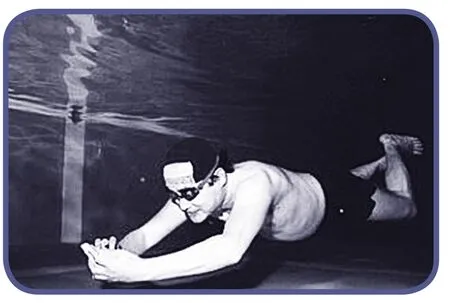
“To starve the brain of oxygen,” says the man, “you must dive deep and allow the water pressure to deprive13. deprive: 剥夺,使丧失。the brain of blood. Zero-point-five seconds before death, I visualize an invention.” The Japanese inventor then jots his idea down14. jot down: 匆忙记下,潦草记下。on an underwater notepad and swims back to the surface.
Another key to Nakamatsu’s success? Brainstorming in a “calm room,” a bathroom tiled in 24-karat gold.15. tile: 用瓦片、瓷砖等覆盖;karat:开(黄金纯度单位),文中的24开为纯金。Dr. NakaMats says the tiles block out television and radio waves that harm the creative process.16. 中松义郎博士说,这层纯金瓷砖屏蔽了影响他创造过程的电视和电台信号。block out: 封闭,阻拦。The room is also nail free, because he believes that “nails reflect thinking.”
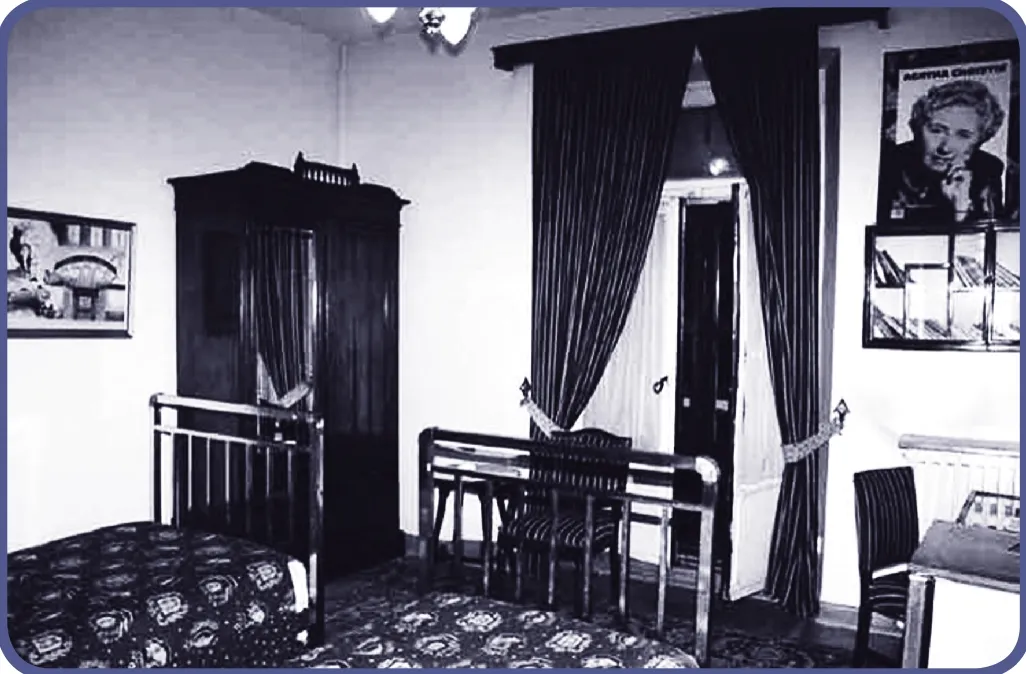
8. Agatha Christie阿加莎·克里斯蒂(英国著名女侦探小说家、剧作家,三大推理文学宗师之一)
She wrote 66 detective novels and 14 collections of short stories, but Agatha Christie didn’t write at a desk. As a matter of fact, she never even had an office—she wrote Murder on the Orient Express, for example, in the hotel room pictured left. She did use a typewriter, though; for Christie, typing itself was part of the writing process.
电子白板带有可以标记功能的专用笔。教师可以用它来圈圈画画,给学生强调,突出重点。要知道,我们语文课堂的知识要点很多,而且很零碎,所以要学生牢牢记住,未免有点强人所难。我们就可以运用这个标记功能,勾画出重点,让学生把该记的记牢固了就可以,其他知识就看作课外拓展,了解就可以了。
This writing process of Christie’s was often disjointed17. disjointed: 不连贯的。. She wrote wherever the mood struck,sometimes at a kitchen table or in her bedroom. Christie sometimes started writing long before she even had a plot for her stories, and she generally started with the details of the murder scene itself before moving on.
7. Honore de Balzac奥诺雷·德·巴尔扎克(法国小说家,被称为现代法国小说之父)
Think you’re addicted to coffee? Chances are your caffeine problem doesn’t even come close to that of French novelist Honore de Balzac. This historical writer consumed as many as 50 cups of coffee each day,barely sleeping at all while composing his magnum opus, La Comedie Humaine.18. 在创作巨著《人间喜剧》期间,这位历史性的作家每天喝下多达50杯咖啡,并且几乎不眠不休。magnum opus:巨著,杰作。
In “The Pleasures and Pains of Coffee,” an article published in a French magazine in the 1830s, Balzac treated the drink with flamboyant, poetic prose.19. flamboyant: 夸张的;prose: 散文。“This coffee falls into your stomach, and straightway there is a general commotion20. commotion: 混乱,骚动。,” he wrote. “Ideas begin to move like the battalions of the Grand Army of the battlefield, and the battle takes place.21. 一个个想法就像法兰西的伟大军队一样横扫战场,战争一触即发。battalion: 营,军营。Things remembered arrive at full gallop, ensuing to the wind.”22. 记忆中的事情瞬间闪现,随风而至。at full gallop: 用最快速度,飞快地;ensue: 跟着。
6. Sigmund Freud西格蒙德·弗洛伊德(奥地利精神病医师、心理学家、精神分析学派创始人)
A pioneer in the field we now call neuroscience, Freud offered insight into the subconscious, changing the way psychologists approach the human mind.23. 弗洛伊德作为神经系统学的创始人,他对于潜意识的见解和领悟改变了心理学家解读人类心理的方法。neuroscience: 神经系统科学;insight: 见解,洞察;subconscious: 潜在意识,下意识心理活动。Freud’s quirk? Nicotine—and cocaine.
The psychoanalyst’s addiction started early, and he soon smoked almost continuously. A close friend and doctor finally warned Freud that smoking cigars all day was causing a dangerous cardiac arrhythmia24. cardiac arrhythmia: 心率失常,心率絮乱。.
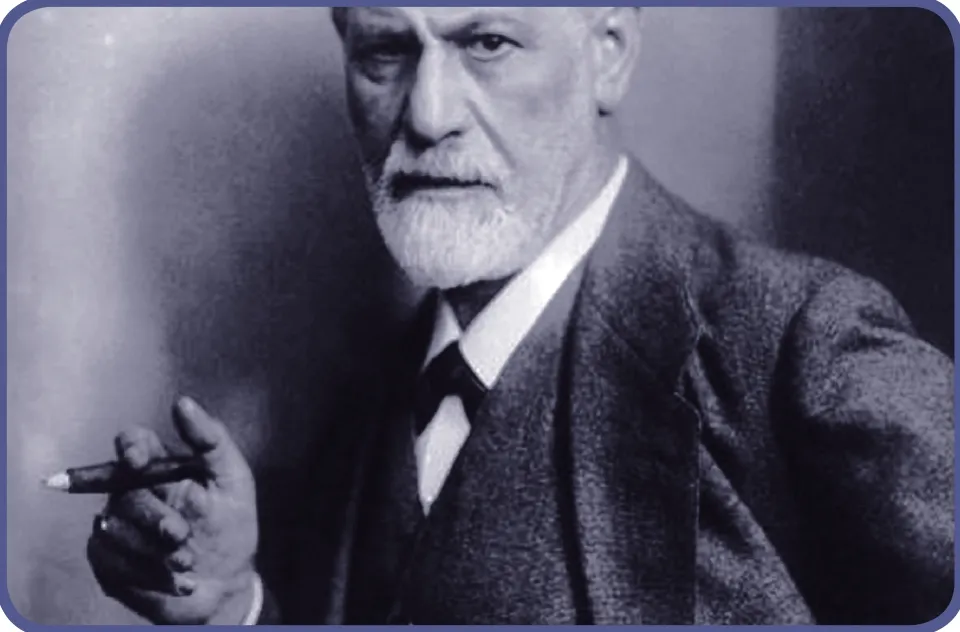
Freud tried to quit, but he suffered from severe depression during the process. Just how bad was it?“Soon after giving up smoking,” he wrote, “there came a severe affection of the heart, worse than I ever had when smoking…and with it an oppression of mood in which images of dying and farewell scenes replayed the more usual fantasies.”25. “戒烟后,”他写道,“我的心脏受到了严重影响,比吸烟时更加严重……随之而来的是心情压抑,经常出现死亡和离别场景的幻觉。”fantasy: 空想,幻想。Freud just couldn’t bring himself to kick the habit—even after 33 surgeries on his mouth and jaw to remove the cancer it caused.
The man also experimented with self-medicating26. self-medicating: 自我药物治疗。with large doses of cocaine. His ultimate product from this abuse was his Cocaine Papers, a “song of praise to this magical substance.”27. 他滥用可卡因的最终成果是《可卡因白皮书》,是“对这种神奇物质的赞歌”。
5. Albert Einstein阿尔伯特·爱因斯坦(犹太裔物理学家,创造了著名的相对论)
Albert Einstein wasn’t just a genius. He was also a slow-to-speak young man who struggled to use language as a child, causing his parents and doctors great concern. Coupled with a stubborn, precocious rejection of authority, Einstein said his slowed
development gave him more opportunities to think about life’s basic elements, like space and time.28. 他不仅固执地、与生俱来地抗拒权威,爱因斯坦说自己的发育滞后给了他更多机会去思考生命的基本要素,比如空间和时间。stubborn: 顽固的,固执的;precocious: 早熟的,较早具备某种能力的。His sense of wonder at these concepts made him pose curious questions, eventually leading to such breakthroughs as his theory of relativity29. theory of relativity: 相对论。.
Einstein never completely grew out of his odd habits. His chauffeur reports that he once plucked a grasshopper off the ground and ate it.30. 据其司机说,他曾经从地上捏起一只蚱蜢就吃掉了。chauffeur: 司机;pluck: 采,摘;grasshopper: 蚱蜢。He would also take his violin along on birdwatching treks31. trek: 一段旅程。,playing music with tears streaming down his face.
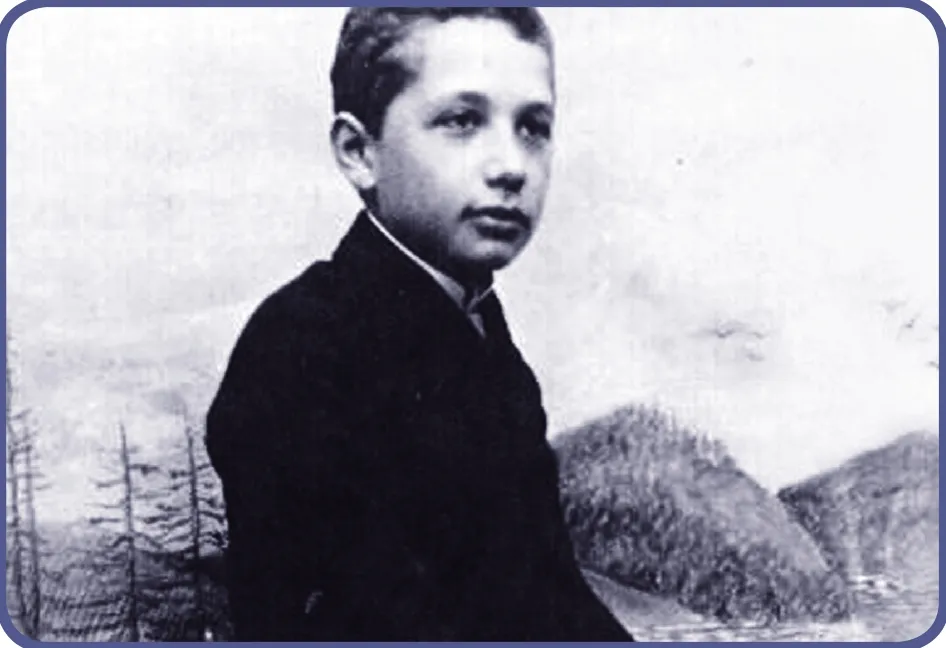
4. Nikola Tesla尼古拉·特斯拉(塞尔维亚裔美籍发明家、机械工程师和电机工程师)
If not for Nikola Tesla, our understanding of electricity would likely be years behind what we now enjoy. Tesla also filed for more than 300 patents for inventions like electromagnets, the radio, and the AC motor.32. electromagnet: 电磁体,电磁铁;AC motor: 交流电动机。But unlike Einstein,Tesla didn’t start out quirky. He just kind of became a little off-the-wall33. off-the-wall: 行为古怪的,疯疯癫癫的。as he aged.
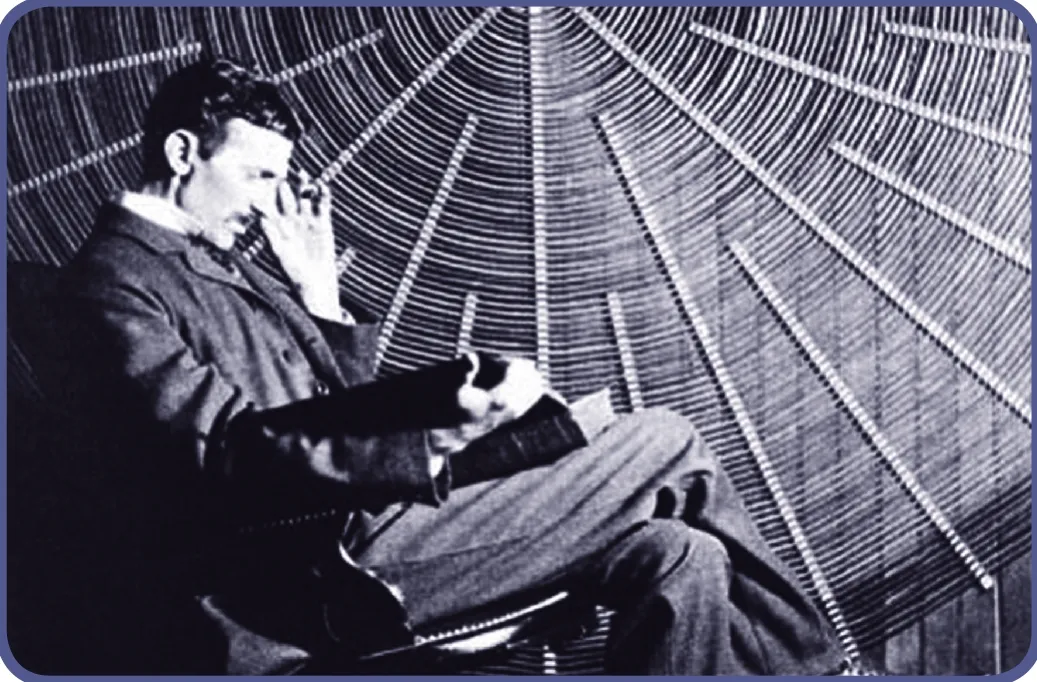
Tesla was known to begin work each day at 3:00 a.m. and continue until 11:00 p.m.. These habits caused him to suffer a mental breakdown at age 25. He then pulled himself together and continued the same regimen well into old age, working as many as 38 years without a break in his rigorous work schedule.34. 然后他重新振作起来,坚持这个作息规律直至晚年,他从不间断地按照这个严格的工作时间表工作了整整38年。pull oneself together:重新振作起来;regimen: 生活规律;rigorous: 严格的。
The man was celibate35. celibate: (出于宗教原因)独身的,禁欲的。, but got along well with pigeons. He had a few deep-seated revulsions: He couldn’t stand overweight women or jewelry of any kind (especially pearls).36. 他对几样东西有着根深蒂固的强烈厌恶:他不能忍受体重超标的女人或任何珠宝(特别是珍珠)。revulsion: 厌恶,强烈的反感。
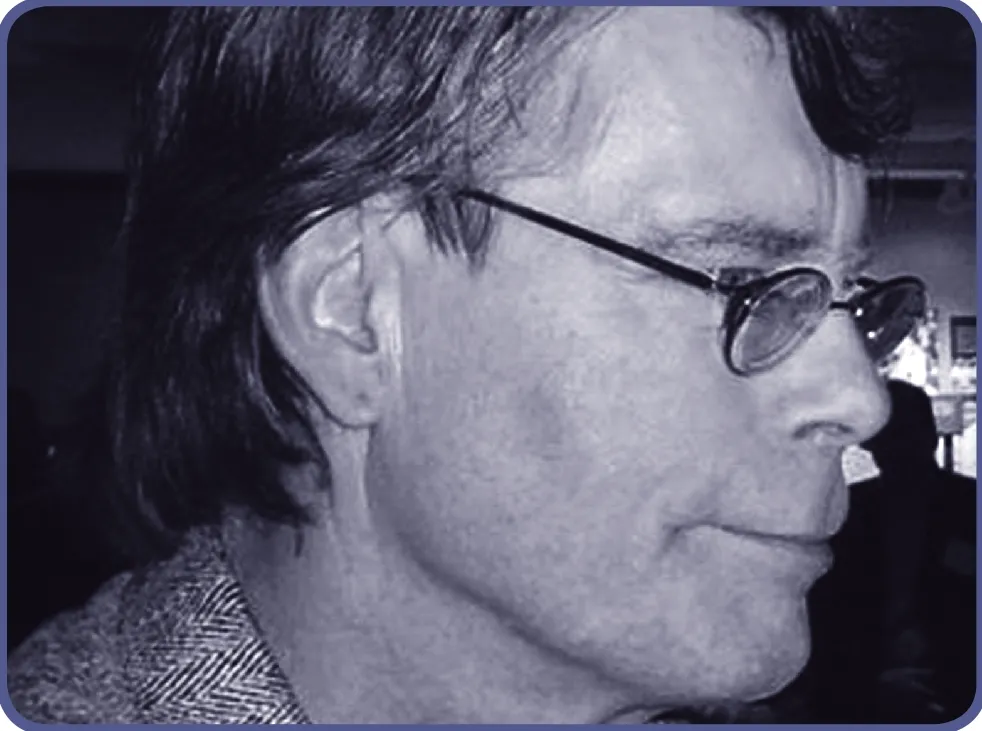
3. Stephen King史蒂芬·金(美国畅销书作家)
Writers and teachers are known for their almost religious positions about punctuation and parts of speech—ever heard two grammar Nazis get into a heated argument about the Oxford comma?37. 众所周知,作家和教师对于标点符号和词性一丝不苟,但你是否听说过两个语法狂热分子就牛津逗号进行了激烈的争辩?part of speech: 词性,词类;Nazi: (德国的)纳粹党人,此处指……的狂热分子;Oxford comma:牛津逗号,又名哈佛逗号(Harvard comma)、序列逗号(serial comma),指的是在英语中列举多个对象时,在最后的“和(and)”前也加上一个逗号,以减少可能的歧义。Stephen King has some firm views on grammar, to the point of drafting 2,000 adverbfree words every day.
In his book On Writing: A Memoir of the Craft, King says, “I believe the road to hell is paved by adverbs, and I will shout it from the rooftops.”38. shout sth. from the rooftop: 公开谈论,大声宣布。King makes a solid case (that you’ll only appreciate if you’re a lexophile) for powerful writing that’s completely devoid of adverbs.39. 史蒂芬·金还有力地证明了,好的写作根本不能用副词(只有当你是词汇爱好者时才能理解这一点)。lexophile: 词汇爱好者;be devoid of: 缺乏。Adverbs, claims King,rob details and specificity from the rest of the sentence.40. 金宣称,副词削弱了句子所表述的细节和特性。“Adverbs were created with the timid writer in mind,” he says.
King is also among the most prolific contemporary writers whose works regularly hit the New York Times Best Seller list. He says that writing 2,000 (adverb-free) words every single day—even on holidays—is one of the keys to his success.
2. Thomas Edison托马斯·爱迪生(美国著名发明家、物理学家、企业家)
Thomas Edison’s research associates had to pass a tough interview process, which included eating a bowl of soup under the famous inventor’s eye.41. 托马斯·爱迪生的研究助理必须经过严格的面试流程,包括在这位大名鼎鼎的发明家眼皮底下喝掉一碗汤。Edison’s soup scrutiny checked whether potential employees seasoned food before tasting it.42. scrutiny: 详细审查;season: 给……加调味品。If they added salt to soup they hadn’t tried, Edison automatically dismissed them. The test aimed to weed out those who started out with too many assumptions.43. 这个测验的目的在于淘汰那些一开始就自以为是的人。weed out: 淘汰;assumption: 认为(某事)当然,自负。
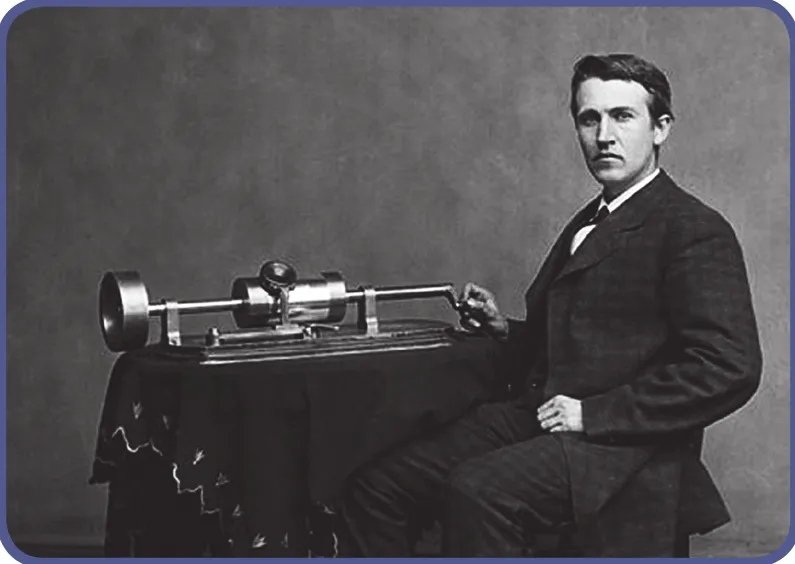
Edison was another of the great minds who eschewed44. eschew: 避开,回避。such necessities as sleeping. Specifically, Edison adopted a polyphasic sleep cycle, a nap-oriented sleep pattern that aims to free up more waking time over a person’s life.45. 具体而言,爱迪生采取的是多段式睡眠周期,这种以打盹为主的睡眠模式目的在于让人一生中清醒的时间更多。polyphasic sleep: 多相睡眠,多段式睡眠;free up: 空出来。The polyphasic sleep cycle has recently enjoyed a resurgence46. resurgence: 复苏,重新流行。in popularity; it’s an attractive option for those looking to increase their productivity.Unfortunately, most experiments on polyphasic sleeping have yielded rather groggy47. groggy: (因病或睡眠不足而) 虚弱的,昏昏沉沉的。results.
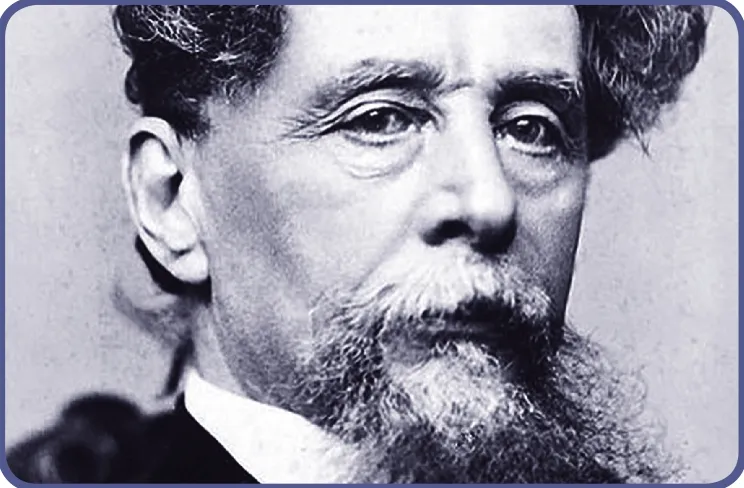
1. Charles Dickens查尔斯·狄更斯(19世纪英国批判现实主义小说家)
One of the greatest social reformers of Victorian London, Charles Dickens was an incredibly prolific author—but he was also a bit obsessive on some points. An employee reported that Dickens couldn’t stand to have a hair out of place, so the writer kept his comb nearby and ran it through his hair hundreds of times a day.48. 一位员工称,狄更斯不能忍受一根凌乱的头发,所以这位作家时刻把梳子带在身边,一天梳头几百次。comb: 梳子。
Dickens was also obsessively specific in his requirements for the arrangement of his study. Experts who have analyzed Dickens’s life and works have blamed a mild form of obsessive-compulsive disorder and even epilepsy.49. obsessive-compulsive disorder: 强迫性精神障碍,强迫症;epilepsy: 癫痫。
His other creative secret? He paced while composing text and dictated his work to an assistant who did much of the physical writing for him.50. 他在创作时会踱来踱去,向助手口述作品,大部分的笔头工作都是助手完成的。They’d sometimes work through each sentence multiple times,substituting51. substitute: 替换。words and changing their order before moving on.

